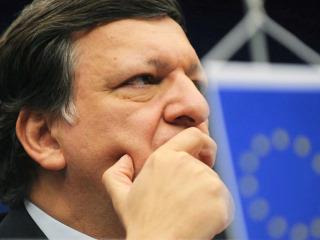This included not only short-term measures to stabilise the financial sector, revitalise the economy or ensure the solvency of Greece and the stability of the Eurozone, but it also entailed the setting up of a medium- and long-term vision to put Europe on the path of smart, sustainable and inclusive growth ("Europe 2020"). Now the time has come also to draw far-reaching lessons concerning the way economic policies are dealt with.
Therefore, the Commission proposes to reinforce decisively the economic governance in the European Union. The aim of the Communication is to strengthen the functioning of the Stability and Growth Pact and extend surveillance to macro-economic imbalances. It proposes to align national budget and policy planning through the establishment of a "European Semester" for economic policy coordination, so that Member States would benefit from early coordination at European level as they prepare their national budgets and national reform programmes.
Finally, the Commission considers it to be a first priority to make the European stabilisation mechanism decided by ECOFIN 9 May fully operational. Based on this experience, the Commission intends in the medium-to-long term make a proposal for a permanent crisis resolution mechanism.
President Barroso said: "Europe has dealt with the immediate emergency. Today, the Commission sets out what we need to do to strengthen Europe's economic governance. By reinforcing the SGP, by addressing the macro-economic imbalances and establishing a robust crisis management framework, we have the core ingredients for a Consolidation Pact for a strong European economy. I am confident that Member States are determined to follow suit on our proposals to reduce the risks resulting from our interdependence for the benefit of our citizens and demonstrate our willingness to protect the euro as a most important asset of the EU."
Commissioner Rehn said: "Coordination of fiscal policy has to be conducted in advance, in order to ensure that national budgets are consistent with the European dimension, that they don't put at risk the stability of the other member states. This can be done in the framework of a European economic semester. For euro-area it means deeper and broader surveillance, in particular with regard to macroeconomic imbalances."
The different elements of the Commission's Communication are:
1.Reinforced compliance with the Stability and Growth Pact and deeper fiscal policy coordination: Reinforcing the preventive dimension of budgetary surveillance, in particular in good times, must be an integral part of closer coordination of fiscal policy. Also, compliance with the rules needs to be improved and more focus needs to be given to public debt to ensure the long-term sustainability of public finances. Member States should make sure having in place effective national fiscal frameworks. Recurrent breaches of the Pact should be subjected to a more expeditious treatment. More use should be made in the future of the EU budget to encourage Member States in pursuing the commonly agreed objectives regarding fiscal sustainability.
2.Surveillance of macroeconomic imbalances and competitiveness developments: Beyond fiscal surveillance it means a broadening of economic surveillance to the prevention of macroeconomic and competitiveness imbalances, clearly identified in the Commission's EMU@10 report in 2008 and in the 2009 Annual Statement on the euro area as contributing to fuel the large current account deficits and surpluses and increasing the vulnerability of some Member States. For all EU Member States, macroeconomic imbalances will be addressed in the framework of Europe2020 surveillance. For euro-area Member States it is proposed to upgrade the peer review of macroeconomic imbalances now carried out by the Eurogroup into a structured surveillance framework by making use of Article 136 TFEU.
3.A European Semester: Member States would benefit from early coordination at European level as they prepare their national budgets and national reform programmes. Early guidance at the beginning of each year from the European Council on economic policies would facilitate the preparation of Stability and Convergence Programmes and National Reform Programmes. An early peer review of fiscal policies would help shape a fiscal stance for the EU and the euro area as a whole. A synchronised assessment and coordination of both fiscal and structural policies at European level would help the Member States to pursue common objectives and address joint challenges more efficiently than at current is the case.
4.A robust framework for crisis management for euro-area Member States: A clear and credible set of procedures for the provision of financial support to euro-area Member States in serious financial distress is necessary to preserve the financial stability of the euro area in the medium and long term. On 9 May the ECOFIN decided on the establishment of a temporary European stabilisation mechanism to respond to the current exceptional circumstances. The Commission intends in the medium-to-long term make a proposal for a permanent crisis resolution mechanism.
Next steps
Given the severity of the crisis, the Commission considers it important to make swift progress on the reform agenda laid out in this Communication. Follow-up work will include the preparation of legislative proposals to amend the regulations underpinning the Stability and Growth Pact, to enhance the prevention and correction of macroeconomic imbalances within the euro area, and to work towards a permanent crisis resolution mechanism. The first European Semester should start with the beginning of 2011.





 By: N. Peter Kramer
By: N. Peter Kramer

